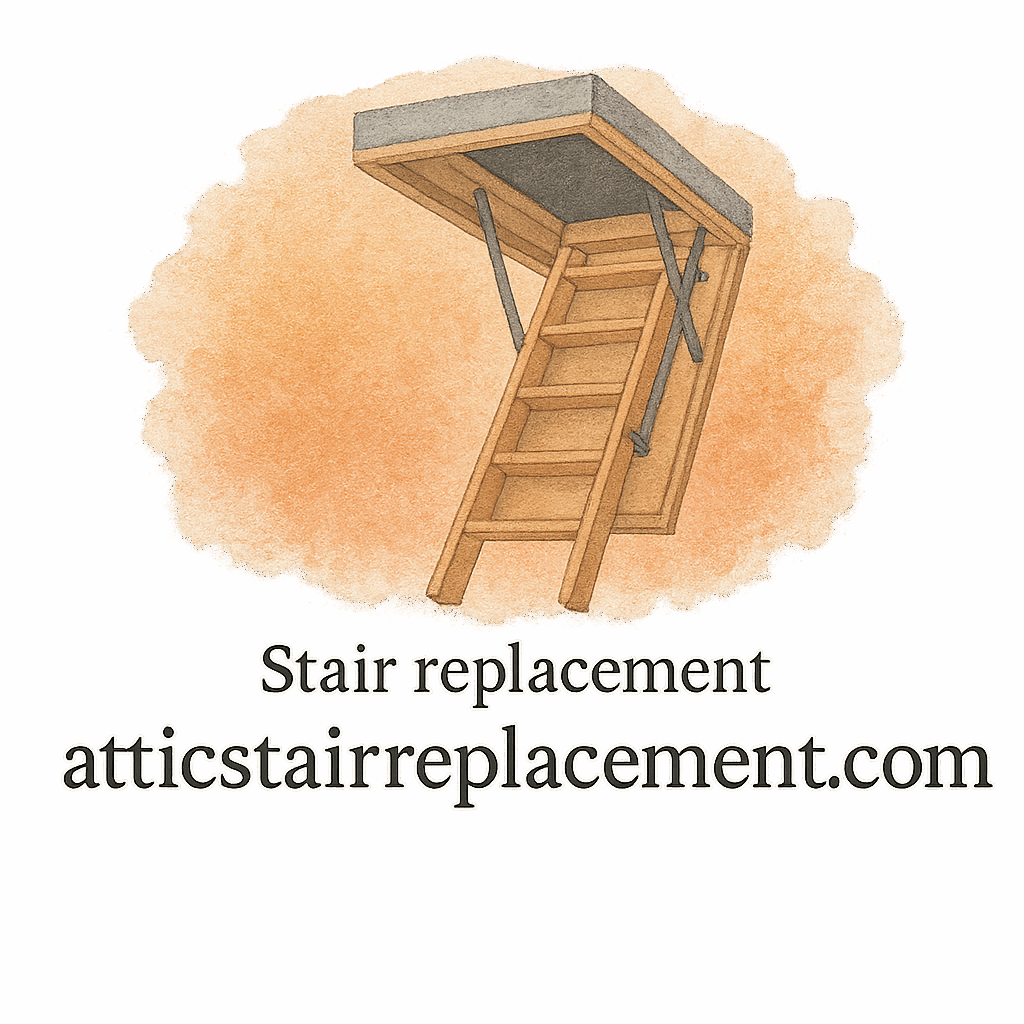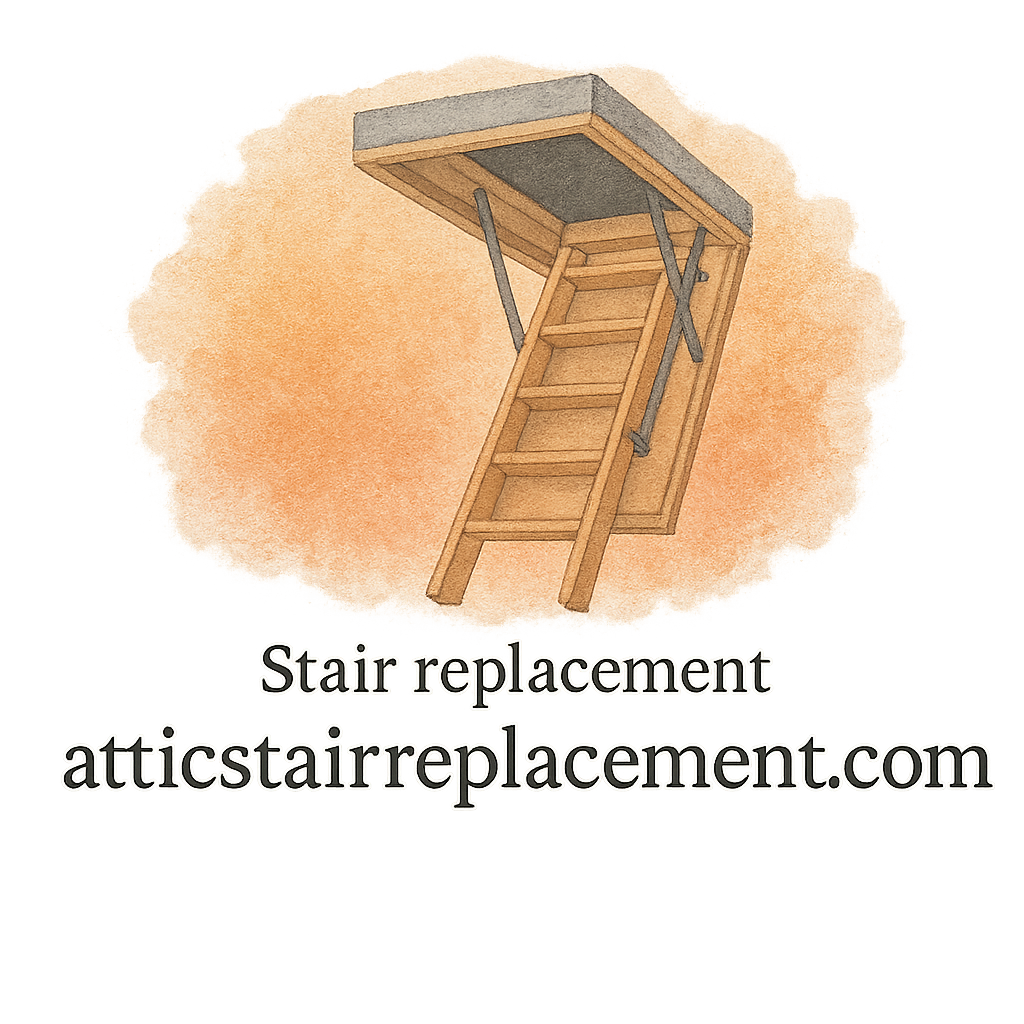Introduction
Thinking about replacing your attic stairs? Whether you’re remodeling, upgrading for safety, or simply tired of that creaky old ladder, doing it yourself can be a fulfilling and cost-saving home improvement project. This guide walks you through every step of the DIY attic stair replacement process—from prep to clean-up. Let’s dive in and get your attic more accessible and safer today.
Also check our dedicated DIY Installation guide for deeper insights!
Why Replace Your Attic Stairs?
Safety Concerns
Old attic stairs can become wobbly, weak, or even dangerous. Replacing them ensures your family’s safety and prevents accidents before they happen.
Improving Home Accessibility
Modern attic stairs offer smoother operation, better weight support, and improved access to your valuable attic space.
Increasing Home Value
Believe it or not, small improvements like new attic stairs can boost your home’s appeal and value, especially during resales.
Explore more on home upgrades in our home improvement section.
Tools and Materials You’ll Need
Before jumping into the steps, gather your tools:
- Tape measure
- Screwdriver or power drill
- Hammer
- Pry bar
- Level
- Safety gear (goggles, gloves)
- Replacement attic stair unit
- Shims
- Screws and nails
You can also read our product reviews to find the best ladder for your project.
Step 1: Evaluate Your Current Attic Stairs
Start by inspecting the condition of your existing stairs. Look for:
- Cracks in the frame
- Rusty or loose hardware
- Difficulty in folding or extending
If your attic ladder is beyond repair, it’s definitely time to replace it. For advice, browse our expert advice archive.
Step 2: Measure the Attic Opening Properly
Importance of Accurate Measurements
A snug fit is crucial. Measure:
- Width and length of the attic opening
- Floor-to-ceiling height
- Attic floor thickness
Double-check your numbers before purchasing a new unit. Many DIY mistakes start with bad measurements!
Step 3: Choose the Right Replacement Ladder
Types of Attic Ladders
You’ll typically choose between:
- Wooden ladders: Classic and budget-friendly
- Aluminum ladders: Lightweight and rust-resistant
- Steel ladders: Heavy-duty and ultra-durable
Explore our tagged heavy-duty options to find the right fit.
Consider Durability and Weight Limits
Choose a ladder that supports at least 250–300 lbs. Durability isn’t just about materials—it’s about safety and lifespan. Check out our durable picks.

Step 4: Gather Your Tools and Materials
At this stage, prep your workspace:
- Clear the surrounding area
- Lay down a drop cloth
- Set up a safe ladder to access the attic
Keep everything within arm’s reach. You don’t want to fumble mid-install!
Step 5: Remove the Old Attic Stairs Safely
This part can be messy. Wear safety gear and:
- Unscrew the old frame from ceiling joists
- Use a pry bar to carefully lower the unit
- Have a partner help if it’s heavy or unstable
Got questions about removal? Visit our maintenance and repair page.
Step 6: Prep the Opening for the New Ladder
With the old stairs out:
- Clean debris from the opening
- Check the structural integrity of joists
- Repair any damage before proceeding
This ensures a secure and safe fit for your new ladder.
Step 7: Install the New Attic Stair Frame
Aligning and Securing the Frame
Raise the new unit into the attic opening and:
- Use shims to hold it in place
- Check level and alignment
- Screw the frame into joists securely
Use a spirit level—it’s your best friend here.
Step 8: Mount the New Attic Ladder
Now comes the fun part—installing the ladder:
- Unfold it fully
- Check for smooth operation
- Trim the bottom legs if needed for height
Take your time! This step determines functionality.
Step 9: Check the Ladder Operation and Stability
Before you clean up:
- Test weight capacity (carefully!)
- Ensure the ladder locks in place
- Check for wobbles or misalignment
Not sure if your installation was solid? Consult an expert or find tips here.
Step 10: Final Touches and Clean-Up
Finally:
- Tighten all screws and hardware
- Add finishing trim if needed
- Paint or stain the frame to match your ceiling
You’re done! Admire your work—it’s well earned.
DIY vs Professional Installation
When to Call a Contractor
If your ceiling has wiring, ductwork, or odd angles, hiring a contractor may be safer.
Budget Considerations
DIY projects save on labor, but don’t cut corners. Know your budget and plan for hidden costs like new trim or tools.
Common Mistakes to Avoid
- Not measuring correctly
- Buying the wrong ladder size
- Rushing the installation
- Ignoring ceiling joist alignment
- Forgetting safety gear
Read more DIY tips and learn how to prevent these blunders.
Maintenance Tips for Longevity
Keep your new attic stairs in shape:
- Lubricate hinges annually
- Tighten bolts every 6 months
- Avoid overloading
- Clean dust and debris regularly
Check our care tips for more ways to keep your stairs in top condition.
Conclusion
Replacing attic stairs might seem intimidating, but with the right tools, a solid plan, and a little patience, it’s a rewarding home project you can be proud of. From safer access to added value, you’ve made a smart upgrade.
For more home project guides, visit our full attic stair replacement portal.
FAQs
1. How long does it take to replace attic stairs?
It typically takes 4–6 hours, depending on your experience and the complexity of the job.
2. Can I install attic stairs alone?
Yes, but having a second person for lifting and alignment helps immensely.
3. What’s the best attic ladder for heavy use?
Look for steel models in our heavy-duty section.
4. How much does a professional installation cost?
Expect to pay between $300–$800 depending on labor and materials. Learn more in our cost advice section.
5. Can attic stairs be installed in a small space?
Absolutely—compact ladder models are designed for tight areas.
6. What safety precautions should I take?
Wear safety gear, use stable ladders, and turn off any attic wiring nearby.
7. How do I know if my attic stairs need replacement?
If they creak, wobble, or don’t open/close smoothly, it’s time for an upgrade. Learn the signs in our guide section.


